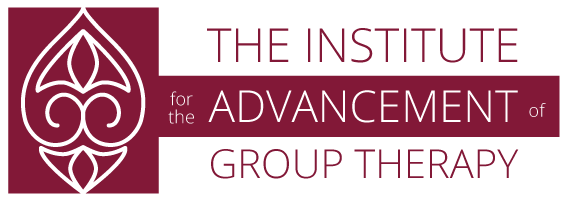The Training Program
Improving Therapist Efficacy Through Evidence-Based Interventions & Deliberate Practice
This training focuses on discrete skills such as therapeutic alliance, empathy, collaborative goal-setting, and others that the research tells us are the most important in driving patient outcomes. Attendees will be trained on specific actions that the top quartile of effective therapists use to improve their patients outcomes at rates of 2-3 times better than an average therapist.
Addressing Patient Trauma: Methods That Matter
Research has found that as many as 80% of patients managing a mental health condition or addiction have some kind of trauma in their lives. We are all familiar with the research on ACEs as they impact the frequency and severity of behavioral issues. This awareness has resulted in an explosion of modalities to address trauma, as many organizations work to become more trauma-informed and clinicians express concerns about addressing their patients’ trauma. This focuses on the research around what works while dispelling many of the myths, such as trauma should be avoided in short-term programs. Attendees will walk away with a firm understanding of the neurological underpinnings of trauma and how to best address it.
Culturally-Informed Treatment: Improving Outcomes for Diverse Patients
It’s not enough for providers to engage in reflective diversity, equity, and inclusion (DEI) practices. Patients from different cultures and backgrounds need very specific approaches, often different from Western cultural treatment norms, to effectively engage them in treatment and help them find relief from the behavioral issues they are living with. This training provides insight into cultural symptom pools, how to identify diverse patients' culturally unique approaches to mental health, and how to formulate culturally appropriate healing practices to help them recover.
Building Recovery Capital to Support Patients Outside of Treatment
The healing space found in therapeutic settings is extremely valuable to patients, but the real work starts once the patient leaves that setting. How do they handle stressors? How do they handle failure and setbacks? How do they engage with family, friends, and strangers who may or may not be supportive? How do they obtain the life skills so critical to supporting a life in recovery?
Effective Auditing and Supervision Practices
Regular session audits are part of the SOP of every treatment program, but also the first thing to get dropped when things get busy (which is basically every day). This training focuses on the systems and processes necessary to ensure regular audits and supervision are completed. We then help participants identify specific areas for improvement based on evidence-based practices in care delivery.
Compassionate Supervision Feedback That Facilitates Rapid Improvement
Giving feedback is easy, but giving feedback in a way that doesn’t raise defensiveness and drives adoption of suggestions for improvement is not easy. This training provides concrete tactics and techniques for compassionately presenting feedback for maximum receptivity. Participants are also trained on how to structure feedback over time for the most effective results.
Beyond Processing: Healing Practices That Support Recovery
Processing is a common focus for many therapists, but processing is only a halfway point in terms of sustaining patient improvement. For example, helping someone trust themselves and have the courage to learn to swim is only a halfway point. The next step is teaching and practicing the specific body movements and positioning required to be a successful swimmer. In therapy, we must do the same. Building a client up and helping them think differently or process emotions and thoughts is the halfway point. Next, we must provide patients with specific techniques, then help them practice so that they can go out into the world outside of therapy and “swim” on their own. This training helps participants effectively structure sessions to maximize practice opportunities so that patients become proficient in the skills necessary for sustained recovery.
Maximizing Patient Engagement in Group Therapy
The first rule of learning and therapy is that one must be paying attention to get anything out of it. Some patients want to be with us, some don’t. Others are very ambivalent about or have fears related to change. In this training, participants learn how to maximize patient engagement so that they can get the most out of every session. This training provides both simple techniques as well as overarching strategies to obtain and maintain patient engagement in session.
Obtaining Patient Buy-in and Building Therapeutic Alliance
The two most important skills for any clinician are obtaining patient buy-in and building therapeutic alliances. We know from the research on therapist efficacy that these two skills, above all others, drive patient outcomes. This training breaks down each skill into a series of subskills to help participants improve in these critical areas.
Repairing Ruptures in the Therapeutic Alliance
Relationships are hard, both inside and outside of therapy, so it’s no wonder that ruptures in our relationships happen. Inside therapy, ruptures are serious because, once they occur, patients are likely to leave or stop benefiting from treatment. In the worst case scenario, a patient could even leave worse than when they came in. This training helps clinicians identify the warning signs that a rupture is about to or may already have occurred. Then participants are provided with specific techniques to help them prevent or repair ruptures in the alliance.
Research, Science, and the Neurobiology of Recovery
The field of neuroscience has evolved rapidly over the past few decades, especially in the areas of human behavior and change. Yet, there still exists a lot of research that has not cross-pollinated from the field of neurobiology to behavioral health. This training provides the most up-to-date neuroscience on cognition, memory, behavior, and change, then connects it to the field of behavioral health. Participants learn how to use neurological principles of learning, development, trauma, and behavioral change to deliver more effective therapeutic interventions.
Get Certified & Improve Patient Outcomes
Ready to engage patients and improve outcomes? Give us a call at 657-360-4114 or fill out the form below and we’ll be in touch shortly.
